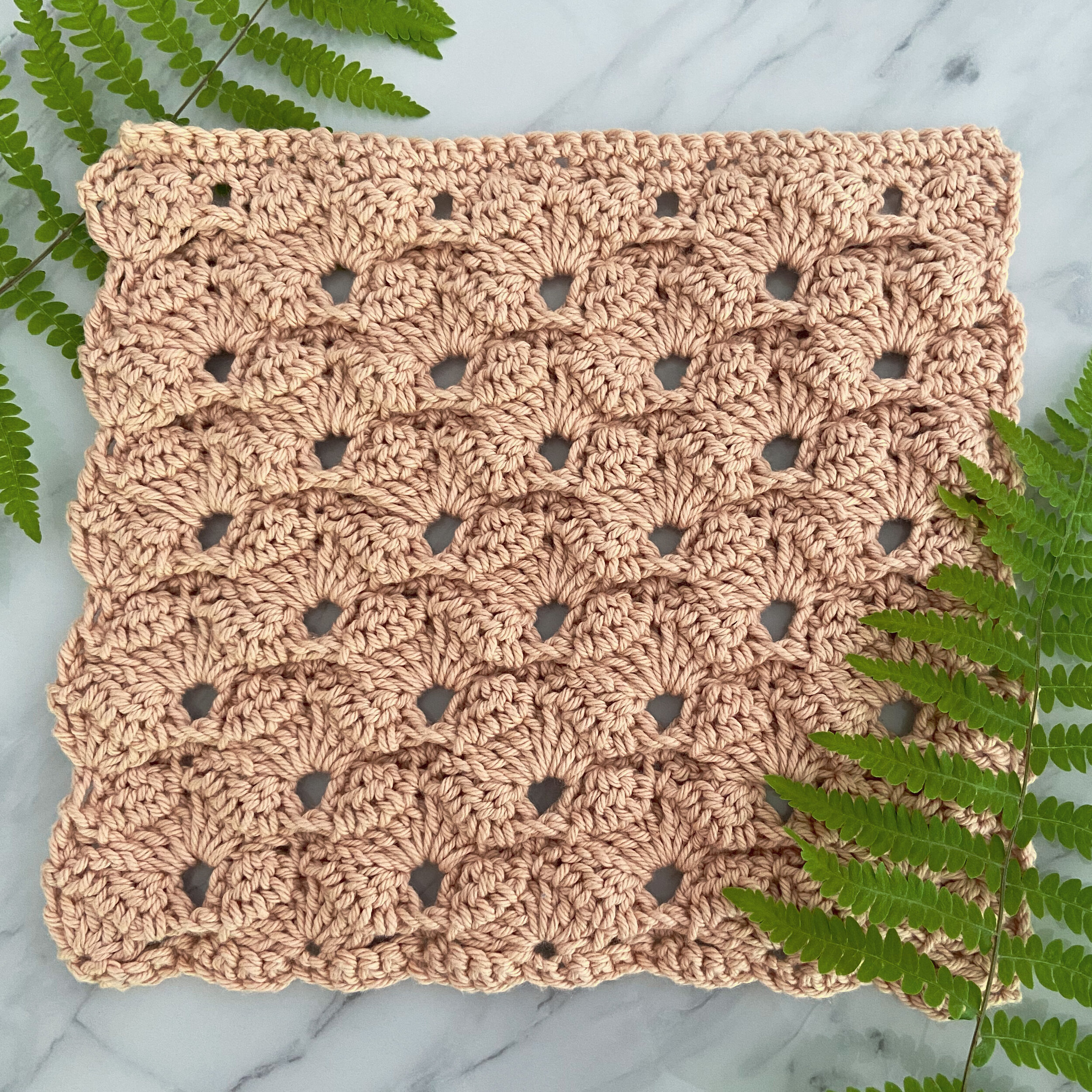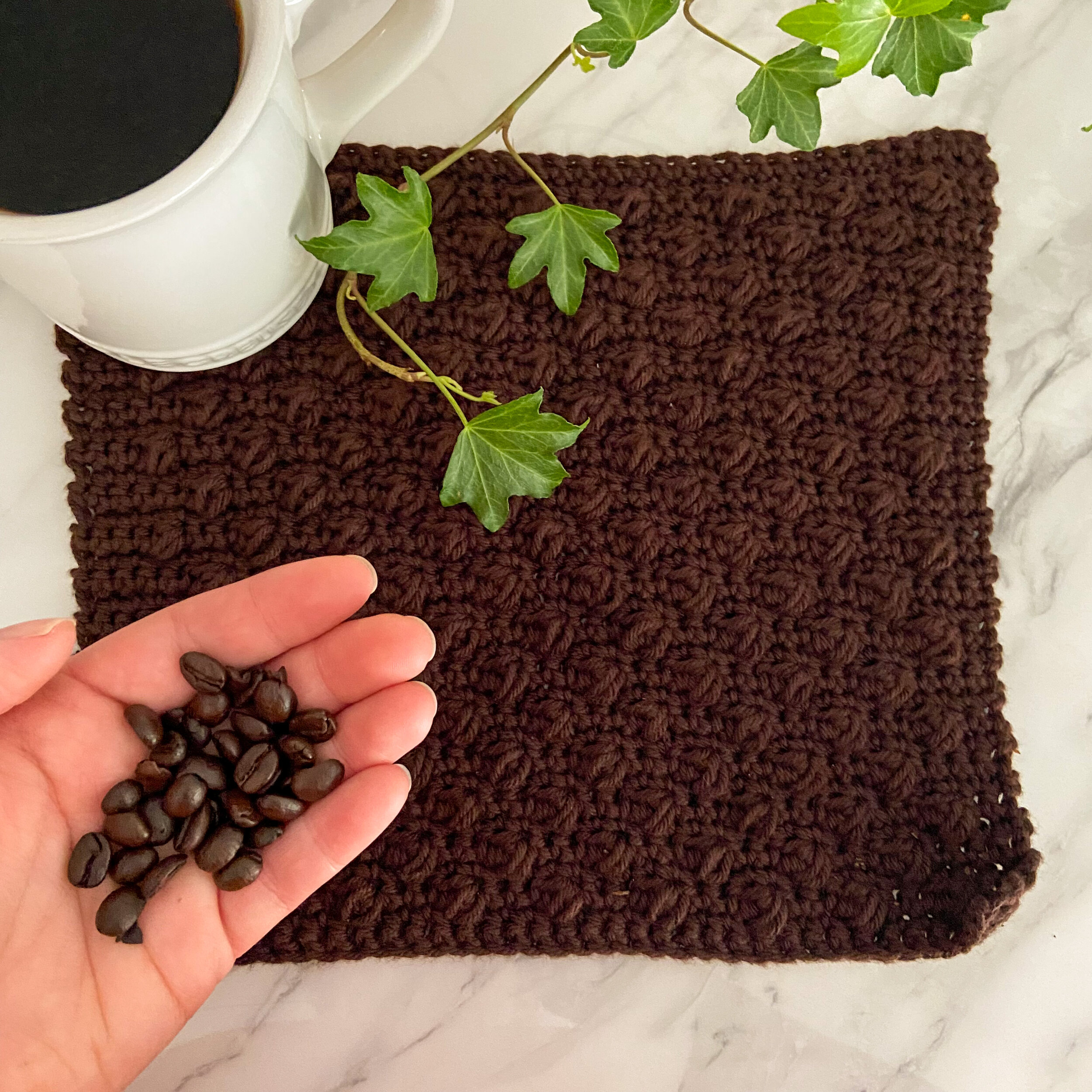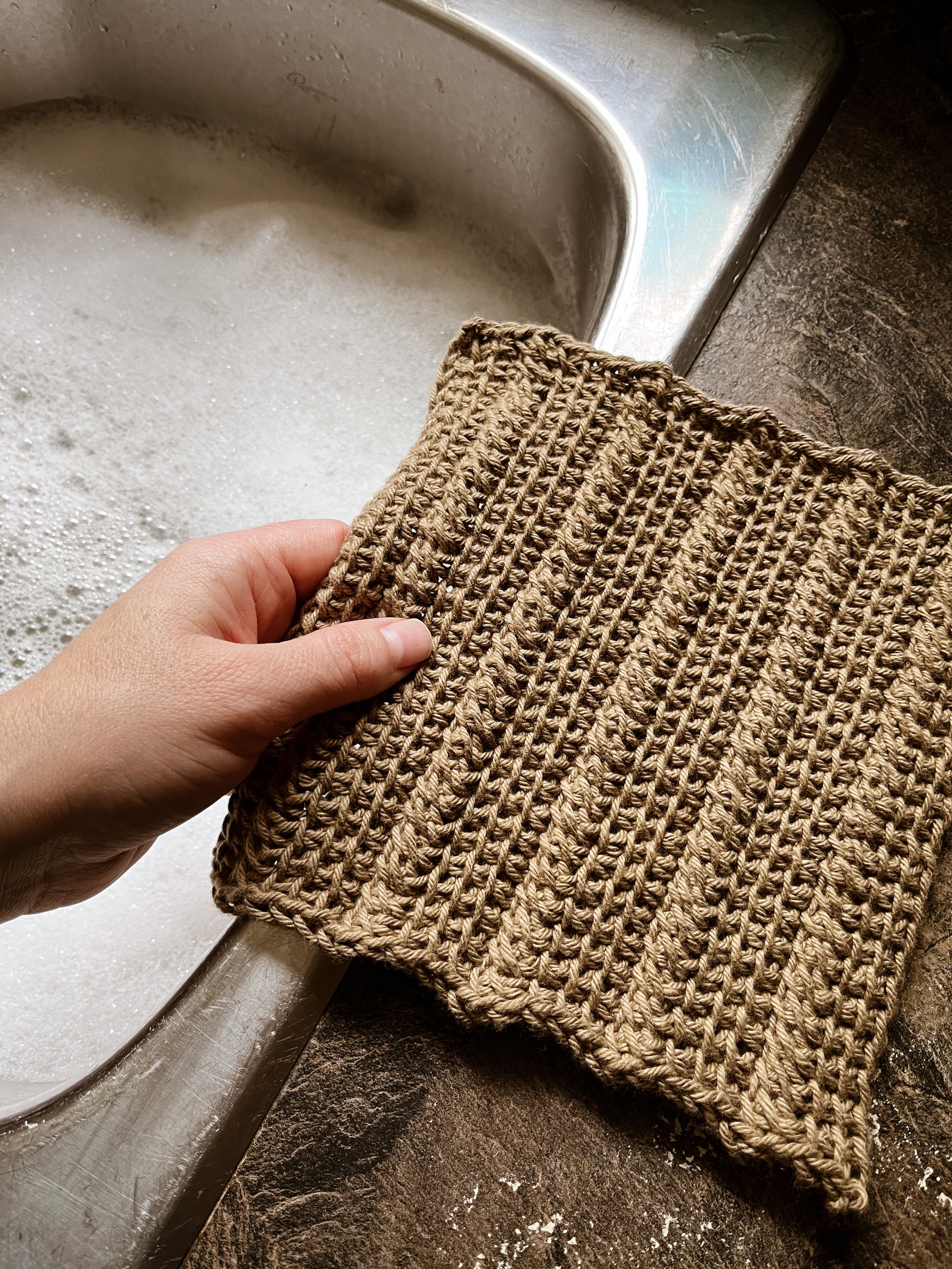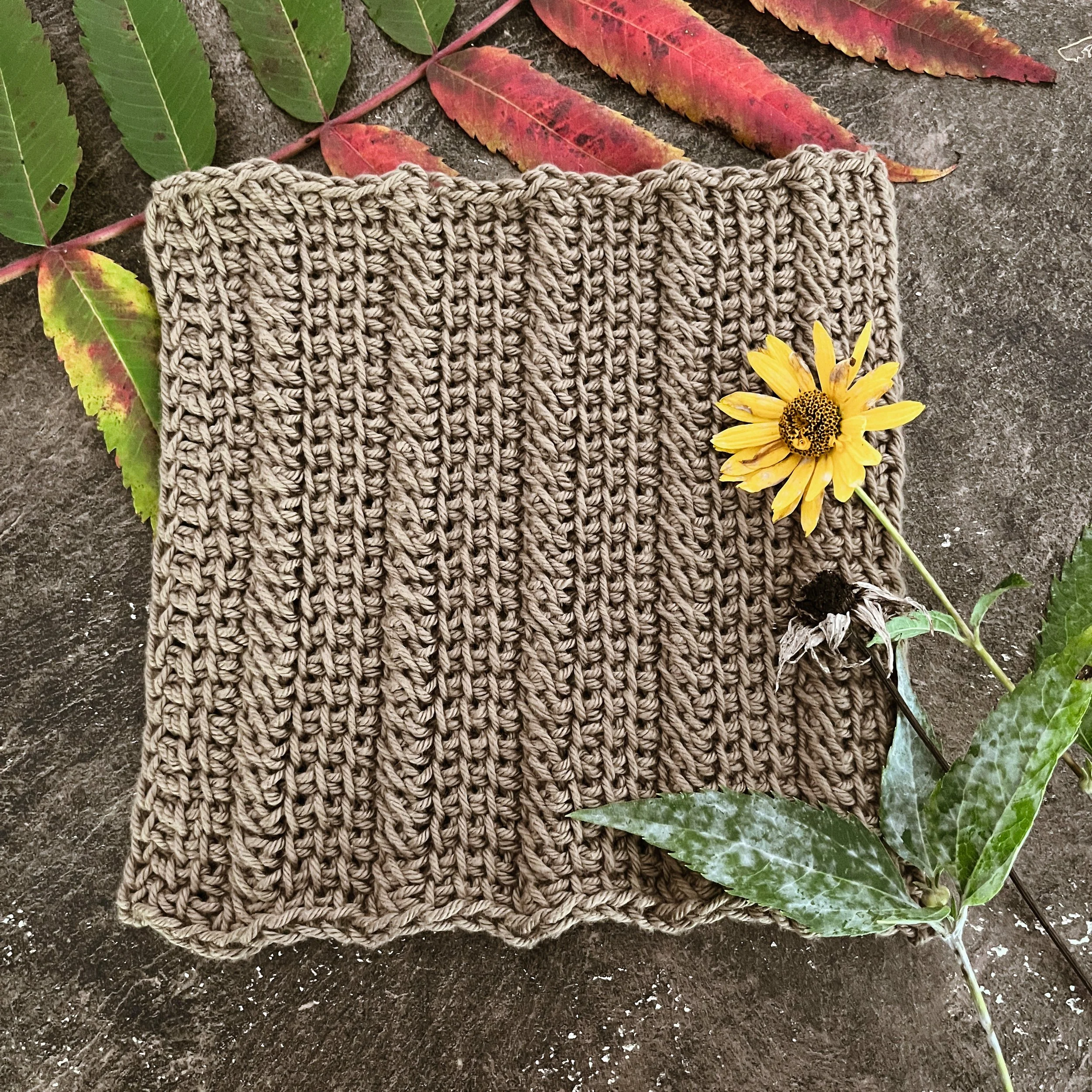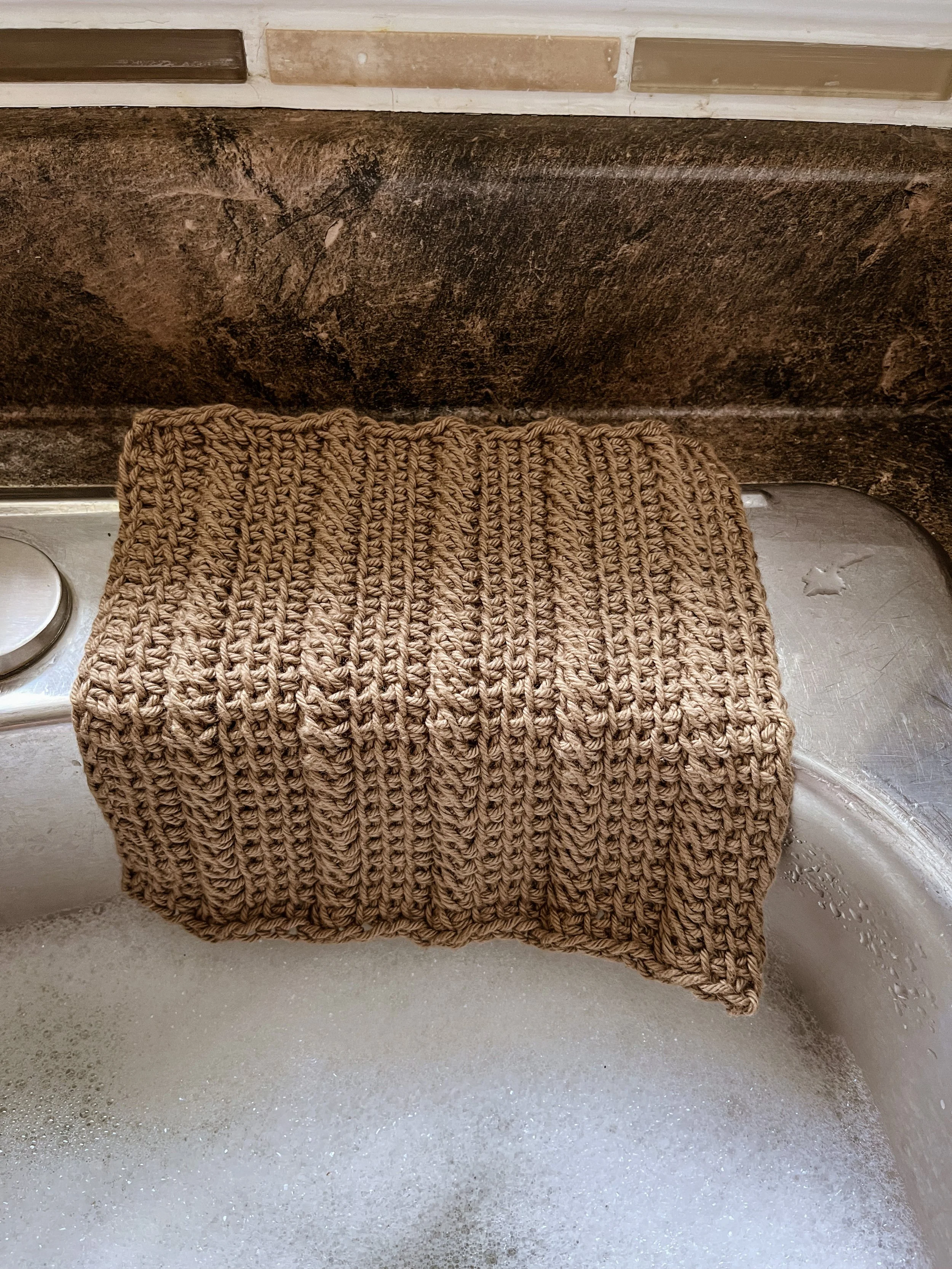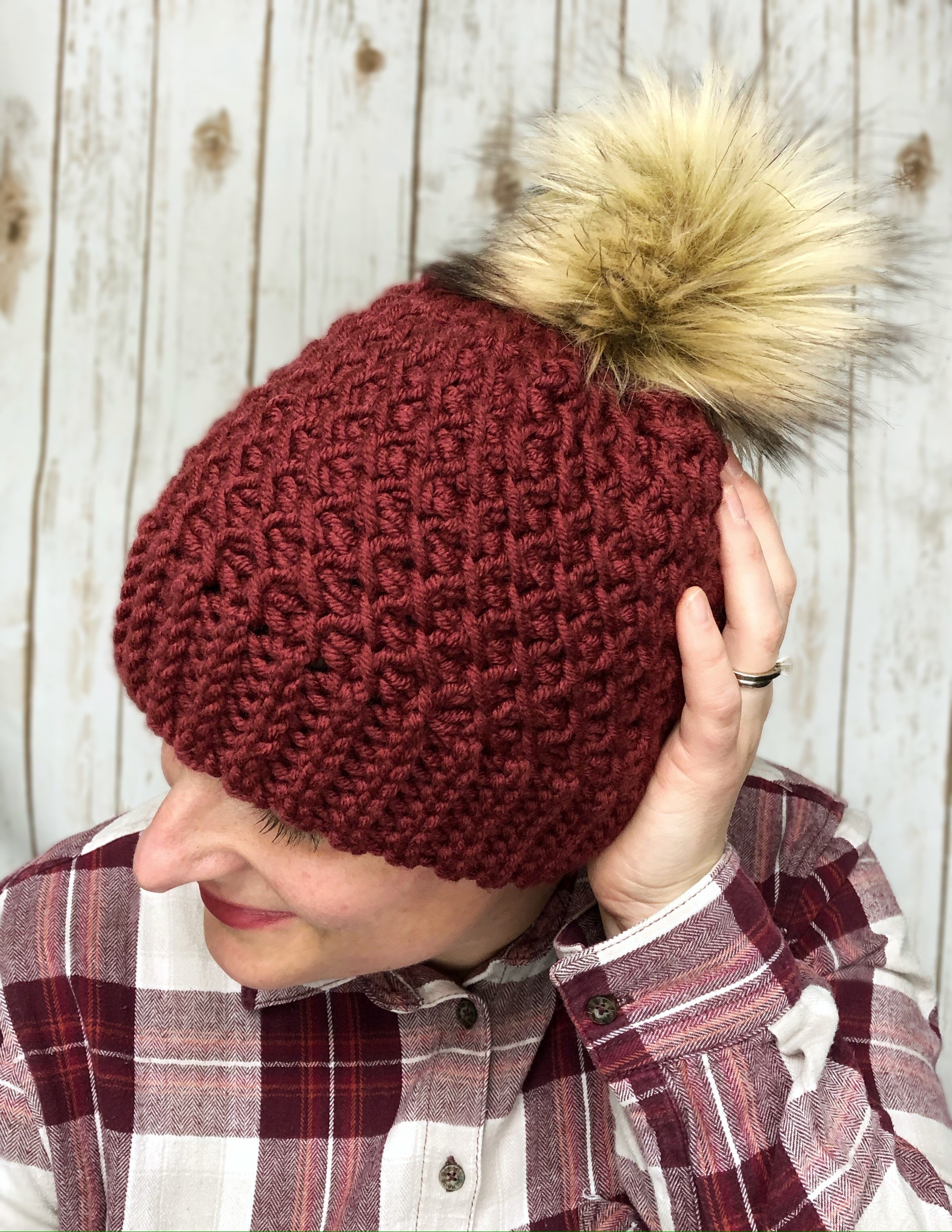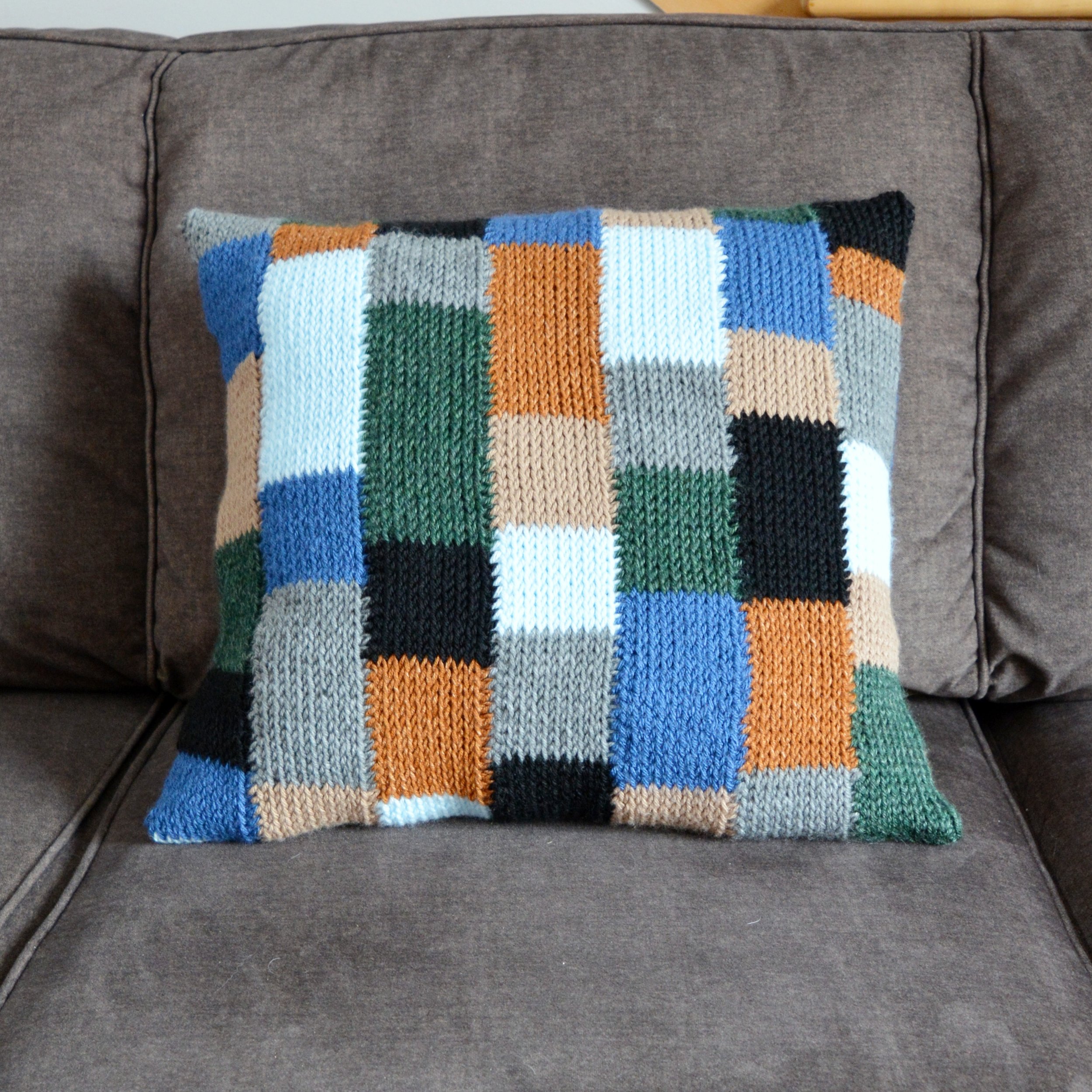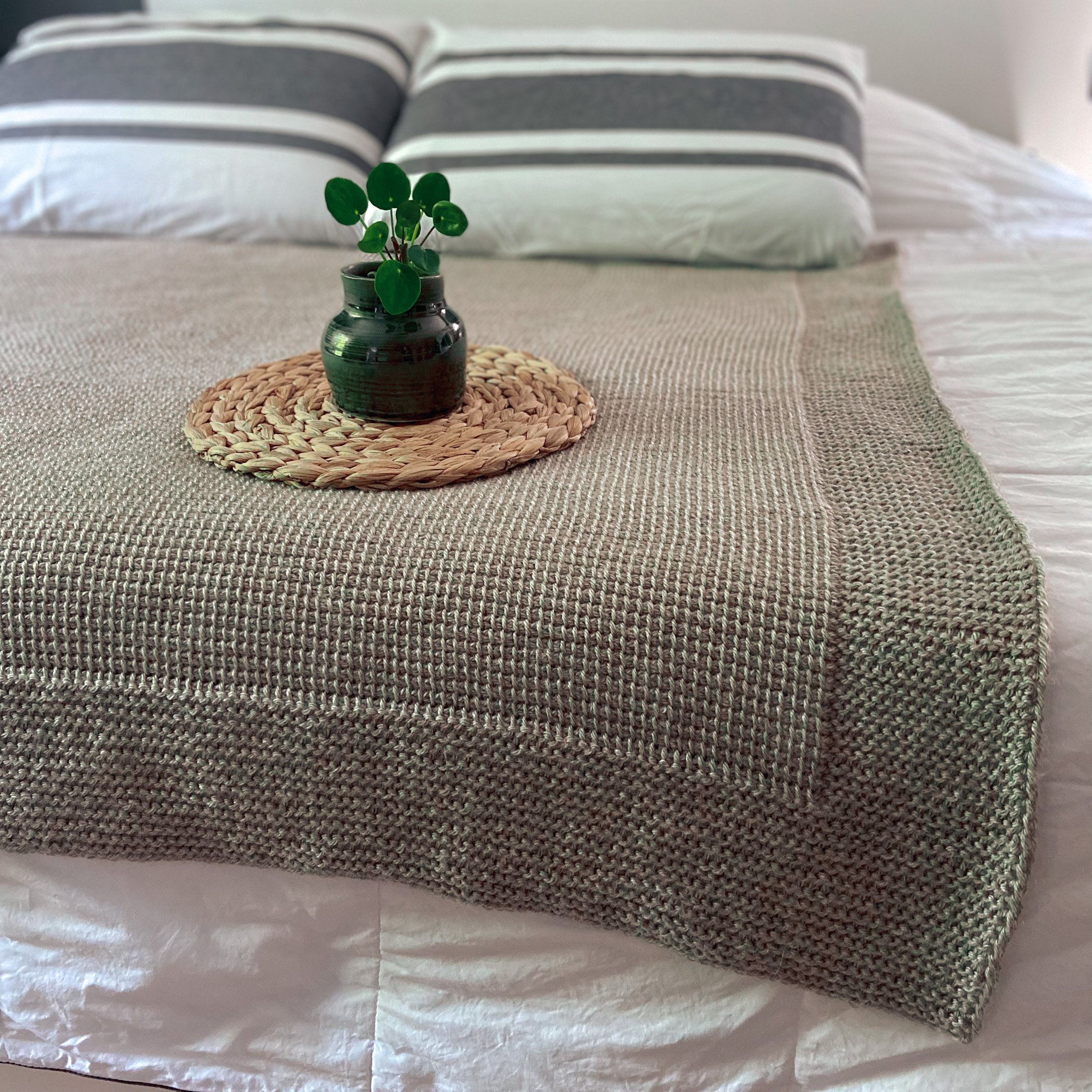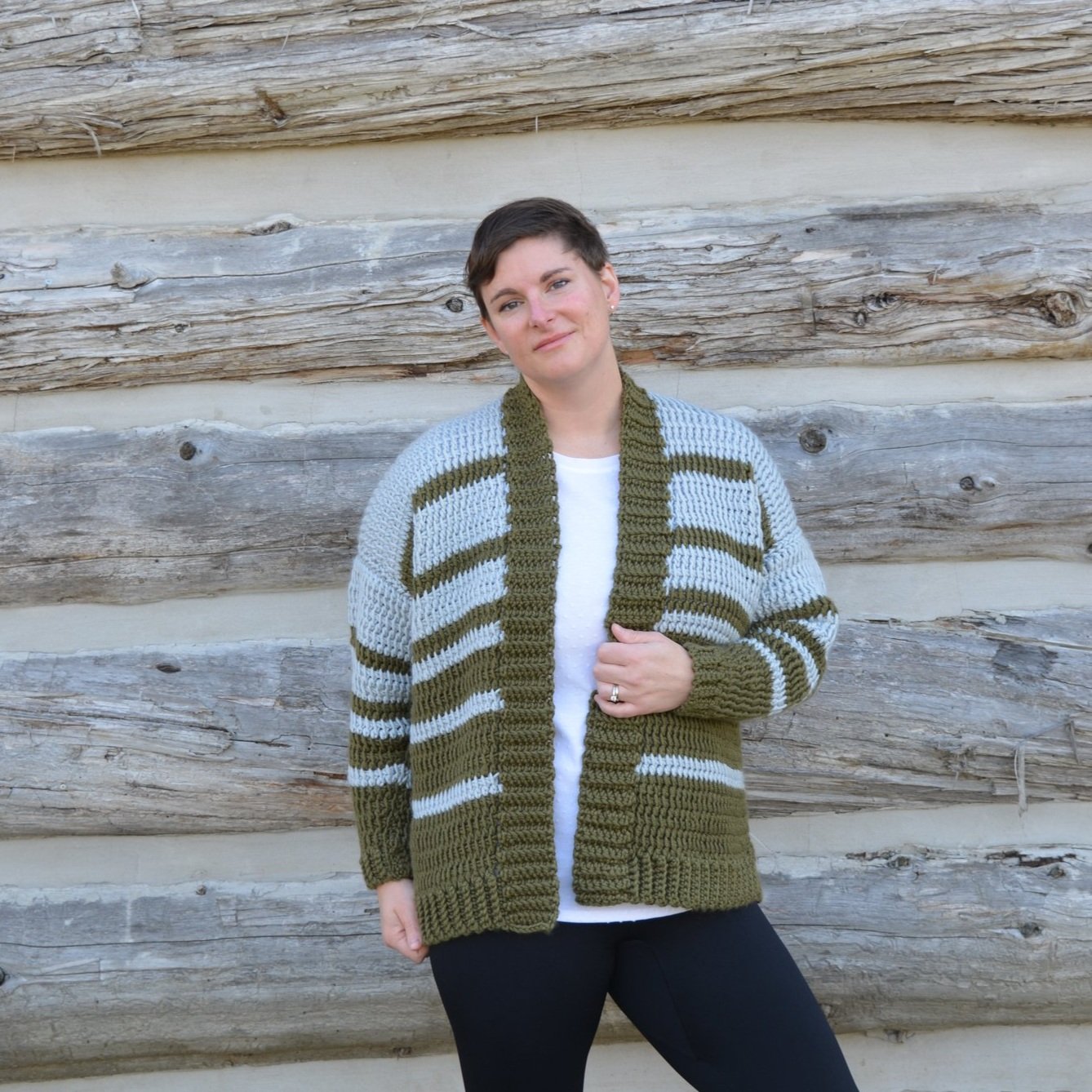Speedbumps Dishcloth
/This post may contain affiliate links, meaning that if you click through and make a purchase, I earn a small commission at no extra cost to you. This helps support my business and makes it possible for me to bring you free content.
It’s Fall, y’all! And I’m back with a brand new pattern in the Stitch Exploration Series - the Speedbumps Dishcloth!
Named for the distinct ridges created by this stitch pattern, the Speedbumps Dishcloth is a great project for someone looking to slowly move beyond the basics in Tunisian crochet. Once you see how simple it is to create this fun texture, you’re going to want to try more!
If you’re not familiar with my Stitch Exploration Series, here are the details: Each month (or month-ish), I post a new FREE dishcloth pattern that uses an interesting technique, skill or stitch. This is my way of challenging myself to try out new techniques and discover new textures and stitch patterns. Check out the other patterns in the series (both Tunisian and traditional crochet).
This series is all about testing out new skills without the pressure of having to create a large project like a garment. When I’m designing, I find that I tend to choose familiar stitches, which can limit my creativity. I’ve chosen dishcloths because they’re small enough to finish up quickly, but large enough to get a general idea of the fabric the stitch pattern will create!
For this series, I’ve chosen a beautiful, durable cotton yarn, Dishie from WeCrochet. It comes in lots of fun colours (30 solids in total, plus there are also Dishie Twist and Dishie Multi!), and it is really nice to work with. It’s also really durable, making it great for dishcloths! In my experience so far, this yarn really holds up well during tough scrubbing.
Check out some of the previous patterns in the series - the Keyhole Dishcloth (cream) is probably my favourite so far, and the Coffee Bean Dishcloth is a fan favourite, with over 250 likes and lots of projects on Ravelry!
If this is your first ever Tunisian crochet project, first of all, I am honoured! Second, I highly recommend that you check out a few tutorials first. This pattern is written with the assumption that you are comfortable with the basic stitches and can identify the different parts of the stitch (you’ll know what I mean once you get the hang of it!). My dear friend Toni of TL Yarn Crafts has an excellent beginner video - check it out HERE.
Once you’ve worked a few practice rows and feel comfortable, dive into the pattern below, and let your obsession with Tunisian crochet begin!
Materials
Hook - US K/6.5mm Tunisian crochet hook, or size needed to meet gauge (either a long hook, or an interchangeable plus a short cable and stopper)
Yarn - WeCrochet Dishie, worsted (4) weight 100% cotton, 190 yds (174m)/100g (3.5oz) per skein.
Sample uses approx. 70 yds/64 m of the colour Mushroom.
Notions - scissors, tape measure, yarn needle.
Terminology/Abbreviations
This pattern uses standard US terms as detailed by the Craft Yarn Council:
Ch - chain
Lts - last Tunisian stitch (insert hook under both vertical loops of the last stitch of each row)
RetP - Return Pass (ch 1, *yarn over and pull through 2 loops, repeat from * until 1 loop remains on hook)
Tss - Tunisian simple stitch
Sl st - slip stitch
St(s) - stitch(es)
Sizing
Gauge - 17 sts x 14 rows = 4”/10cm in pattern stitch
Finished measurements - approx. 7.5x 7.5”/19 x 19 cm
See the Variations section below for instructions on how to easily modify the size.
Notes
The first loop on your hook to start each row counts as a stitch in the overall stitch count, but it is not included in the instructions.
Gauge is not critical for this project, however, if yardage is a concern, you should aim to meet it as closely as possible. No one will judge an extra half inch on your dishcloth!
Generally, I do not block cotton washcloths, because they’re just going to get wet anyway. If you find that your stitches are uneven, or if you just want to straighten up the edges, blocking is a great way to fix these things.
Pattern Instructions
Row 1: Ch 33 and turn. Starting in the second st from hook, pull up a loop in the back bumps of each ch st, and complete a RetP. < 33 sts >
Row 2: Tss next 2 sts. *Skip next 2 sts, tss in third stitch. Then go back and tss in first skipped st, tss in second skipped stitch.** Tss in next 3 sts. Repeat from * across, ending the last repeat at **, and you should have 3 sts remaining. Tss in next 2 sts, Lts, RetP.
Repeat Row 2 until you’ve worked 25 rows.
Bind off in sl st and weave in ends.
Variations
This pattern can be easily adjusted to create a larger or smaller dishcloth.
To change the width of your dishcloth, work an odd-numbered multiple of 3 ch sts to start. For example, 39 will work, but 36 and 42 will not.
To make a taller or shorter dishcloth, simply repeat Row 2 until you’ve reached the desired height.
Keep in mind that any alterations to the stitch or row counts will adjust the yardage required.
Save this pattern to your Ravelry queue, or add a project to the pattern page!
Congratulations on finishing your Speedbumps Dishcloth! I tried mine out immediately after taking the fancy pictures for this post, and I found that the texture works really well for good scrubbing.
I’m having a lot of fun exploring these new-to-me techniques, and I hope you are too! I’d love to see your dishcloths (in finished or WIP form!), or how you’re using the things you’re learning here in your own designs. Share your dishcloth on Instagram using the hashtags #SpeedbumpsDishcloth and #StitchExplorationSeries, and tag me, @capital.crochet!
You may sell finished items made from this pattern, but please credit me as the designer by linking back to this blog post.
Thank you so much for your support! If you’d like to be the first to know about new patterns in this series and other blog posts, make sure to subscribe to my newsletter below.
If you’re loving the Tunisian crochet addition to the Stitch Exploration series, why not check out some of my Tunisian patterns?
The Thimble Beanie is a quick and easy pattern that uses bulky yarn - perfect for market makes!
The Stashdown Pillow is an excellent way to use up your scraps and adds a pop of colour to a couch or bedroom.
The Lisse Throw Blanket is a meditative make that brings warmth and comfort to your decor (also available as a kit via Lion Brand Yarn!).
If you’re ready to take on a garment pattern, check out the Flipside Cardigan!


